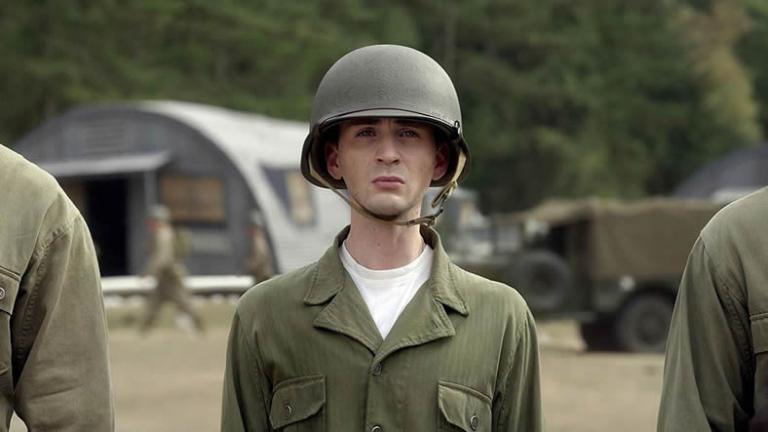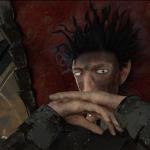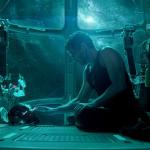
4. Hard work pays off. Woody Allen famously said that 80 percent of life is just showing up. But let’s face it: Woody Allen isn’t exactly Avengers material. Sure, showing up to do battle with evildoers is a big deal—but when you’re facing an enemy like Thanos, preparation, training and lots of hard work is key. Take a look at Steve Rogers’ Captain America, for instance. He worked insanely hard before he was chemically gifted with his superhuman abilities. And in The Avengers, he continues to train relentlessly to keep that bod in shape. Stark is always working to improve his Iron Man suit. Gamora’s skills were honed through years of training. Even though Natasha Romanoff (Black Widow) and Clint Barton (Hawkeye) are both quite mortal, they’ve developed their skills to the point where they, too, can be considered superheroes. And in Avengers: Endgame, the team’s rematch with Thanos is paved not through luck or magic or brute strength, but a lot of overtime.
5. People aren’t always who they seem. This cuts both ways in the MCU, and I’m a little surprised to see how often this theme comes into play. Maybe the first time our superhero narrative innocence was stripped away was in Captain America: Winter Soldier, where we learn that SHIELD was being manipulated by a bunch of bad guys. Iron Man 3 features a controversial villain switcheroo, where the movie’s big bad Mandarin turns out to be an out-of-work actor. In Captain Marvel—a movie that fittingly features the shape-shifting Skrull—almost no one is quite who they seem, right down to the housecat Goose. These movies remind us that people can deceive. We need to be aware of that and, as the Bible suggests, not just as innocent as doves, but as shrewd as snakes.
6. Be humble. This may seem like a strange virtue to slap on a superhuman do-gooder, but Marvel movies return to this theme often. Most of our heroes, when they get a little too big for their super-britches, are cut down a size or two. Iron Man’s a good example, but even a better one is found in Thor. Our titular hero begins his journey as an arrogant prettyboy—a tailor-made villain for any John Hughes movie you’d care to mention. His dad (Odin) strips him of his powers and banishes him in the hopes the lad will eat some crow and build some character. And sure enough, he does. Truth be told, being a hero—or, simply, a good person—isn’t about being great. It’s about serving others and, in so doing, serving something (or Someone) greater.
7. It’s not our successes that make us who we are; it’s our hardships. Thor’s humility—and thus his path to heroism—is rooted in this truth. But you could say the same about practically every hero on the Avengers docket. Captain America didn’t magically become a hero when science gave him his muscles: That heroism was inside him already—heroism that grew from all the trials and challenges he faced when he was a scrawny afterthought. And speaking of captains, we could say the same thing about Captain Marvel, too. Her movie stresses the number of times she fell in the face of adversity … and the number of times she stood up again. No pain no gain, right? But pain isn’t always so positive.
8. Our suffering can twist us. I think of Helmut Zemo, the rather mousy mastermind behind the events of Captain America: Civil War. He fractures the Avengers because he holds the heroes responsible for the death of his family. I think of Black Panther’s Erik Killmonger, who lost his own father—a loss that, in part, spurred him on to take revenge on the world. We even see that same hurt in our heroes. Guardians of the Galaxy Vol. 2 was, in part, a study of how Rocket often pushes away the folks who care for him the most … and why. He’s hardly alone. Many of the characters, both good and bad, have hidden hurts, and it shapes how they think and act. It reminds me to be a little more understanding of those who hurt us, even intentionally. And it reminds me, also, of the following point.
9. Never give up on those you love. Now, I’m sure that many a counselor would tell me that some relationships are just toxic. Sometimes we need to cut someone loose for our own health. But I’d like to think that we should be as generous as we can be with our family and friends as we can be—because sometimes we can turn a relationship around. No MCU relationship illustrates this more powerfully than that of Gamora and Nebula, Thanos’ two lethal adopted daughters. Through her own suffering (see above), Nebula learned to hate her sister and—as she admits in Endgame—tried to kill her several times. But Gamora ultimately returned all that hate with compassion, and that generosity wound up turning their relationship around. “We became friends,” Gamora says. “Sisters.” It’s not the only time we see a relationship redeemed through patience and love in the MCU.












